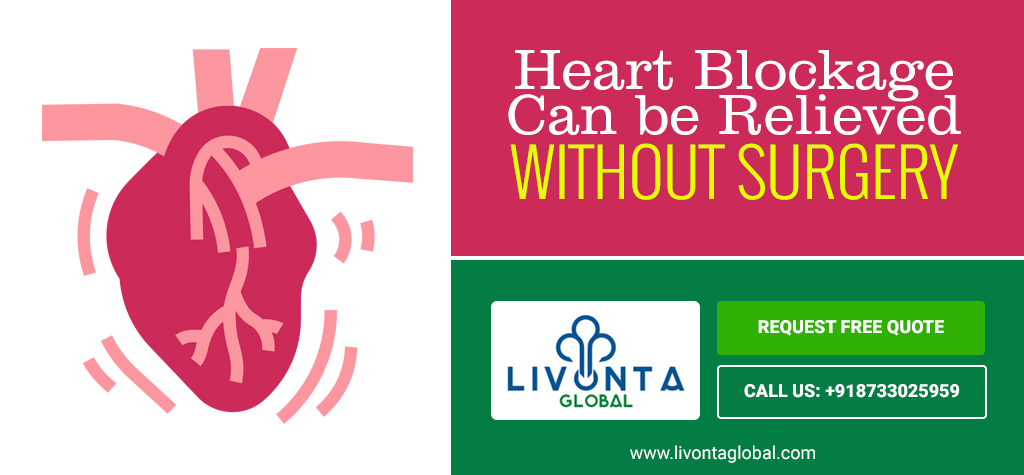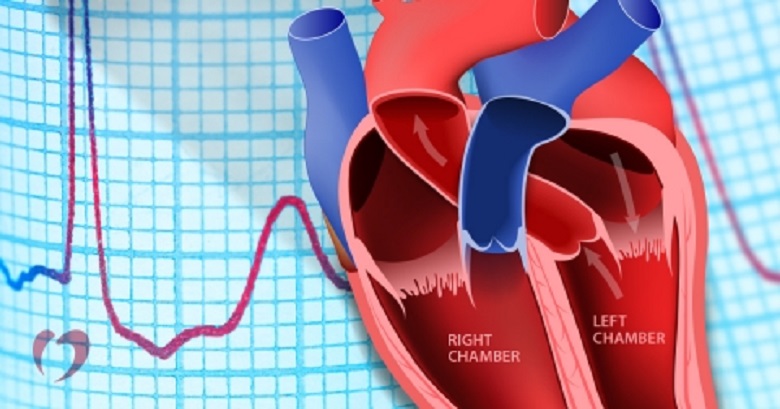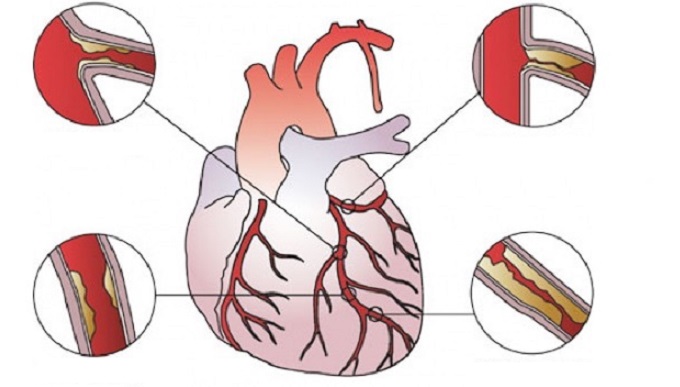
Heart Blockage Can be Relieved Without Surgery
Heart blockage (coronary disease) is a quotidian health condition which is caused by deposition of plaque inside the walls of blood vessels. These blood vessels usually supply blood to your heart. This disease develops gradually, hence you may not face any significant symptoms at the initial stage. A sedentary lifestyle is a prime reason for this disease. If you are suffering from heart blockage or any other poor heart conditions, you should consult with the hospitals which provide the best heart treatment in India. Livonta Global is a prominent name in the medical tourism industry which is partnered with 50+ hospitals and 1000 specialists. If you are planning for the best heart transplant in India, you should get in touch with Livonta Global which will help you in this context.
Signs and Symptoms of Heart Blockage

- Irregular heartbeats or palpitation
- Shortness of breath (when your heart is not enough to pump blood)
- Pain or discomfort in the chest (You may feel pain in your chest, neck, back, or even arm)
- Difficulty while doing exercises (due to lack of blood being pumped in your body)
- Heart attack (This happens at the final stage when a complete blockage is noticed)
How Heart Blockage can be Detected?
If you are suffering from heart blockage or any other heart-related issues, your doctor will recommend you to go for an electrocardiogram (ECG). An ECG test can detect many things like enlargement of heart, abnormal position of heart, poor blood supply, inflammation of heart, congenital heart defects, and many more.
The Best Treatment for Heart Blockage
The best treatment for heart blockage is surgical. Though some blockage conditions can be treated non-surgically if the blockage is not severe. There are mainly two types of surgeries recommended for heart blockage treatment and they are
- Coronary Artery Bypass Surgery
This surgery creates a bypassed way around the blocked artery so that the blood flow can facilitate to the heart. This surgery is performed by the experts under general anaesthesia. The techniques that are used in this type of surgery are open-heart surgery, minimally invasive surgery, and off-pump surgery. The open-heart surgery is the traditional and common surgery method which is only performed when a wide incision needs to make to gain access to the blocked artery. On the other hand, with the minimally invasive technique, a smaller incision is made for easy access.
- Percutaneous Transluminal Coronary Angioplasty (PTCA)
This is the most recent technique which is used by the cardiologists to treat heart blockage. PTCA is a minimally invasive technique which ensures normal blood flow to the heart. This technique also helps to diagnose a coronary artery, heart valve disease and other congenital conditions. In this process, an expert surgeon makes an incision under your skin to insert a catheter to the blocked site. Once the catheter is reached, the surgeon inflates and deflates the balloon several times. This process compresses the plaque and opens the artery.
Heart Blockage Removal Without Surgery

Sometimes, heart blockage can be treated with non-surgical methods. Here, we are going to mention some of the non-surgical treatments which will relieve your heart blockage.
Chelation Therapy
This is a new-fangled and alternative technique that is based on a chemical process. This process removes toxic metals and minerals from the body. A substance called EDTA (ethylenediaminetetraacetic acid, a water-soluble amino acid complex) is used for detoxification. The EDTA solution is injected into the patient’s body and it gradually binds with the calcium plaques which are responsible for the blockage of the coronary arteries. Thereby, it improves blood flow.
More Benefits of Chelation Therapy
- This method can be used in treating metal poisoning along with mercury, iron, arsenic, lead, uranium etc.
- You can use this therapy to overcome diseases like sickle-cell disease and thalassemia.
- This therapy can be used for patients who are having Alzheimer’s disease
Lifestyle Changes and Diet
If you do some changes in your lifestyle and follow a healthy diet, your overall heart conditions will improve. As a result, you will become less susceptible to heart blockage.
- Exercise: Do some regular exercises like walking, running, yoga, and other physical activities. Contact your physician to know which exercises are safe for you on a long-term basis.
- Smoking: Stop smoking to prevent heart blockage and heart attack.
- Diet: Always follow a wholesome diet. Try to eat foods which are low in saturated fat, trans fat, cholesterol, and sodium. Try to incorporate whole grains, fruits, nuts, and vegetables into your diet. Some foods like garlic and flax seeds can treat heart blockage naturally.
- Weight Management: If you are obese, try to manage your weight by doing some exercises.
Medications
Depending on your symptoms and conditions, your doctor will prescribe you some medicines to treat heart blockage. These medicines open up clogged arteries, reduce the workload of heart, and also prevent angina, chest pain, and further narrowing of coronary arteries.
- Beta-Blockers: These are the most common medicines which reduce the heart rate and hence, the blood pressure.
- Calcium-channel Blockers: These medicines are used along with beta-blockers. They reduce your chest pain.
- Cholesterol-modifying Medications: These medicines minimize the level of LDL (Low-density cholesterol or bad cholesterol).
- ACE Inhibitors: They are used to treat high blood pressure and also, prevent the chances of getting coronary artery disease.
- Aspirin: Sometimes, your doctor will recommend you take aspirin or other blood thinners on a daily basis because they minimize the chances of blood clotting and thus, prevents a coronary artery disease. But you should consult with a doctor before taking aspirin on a regular basis.
It is also true that you can’t recognise heart blockage at the initial stage. Therefore, it is advisable to go for a regular heart check-up every 6 months. If you are suffering from any heart-related issue, consult with the cardiologists or specialists from the reputed hospitals who will provide you with the best heart treatment in India.
Cardiology TreatmentTags: Heart Surgery, heart transplant, heart transplant in India, heart treatment, heart treatment in India

